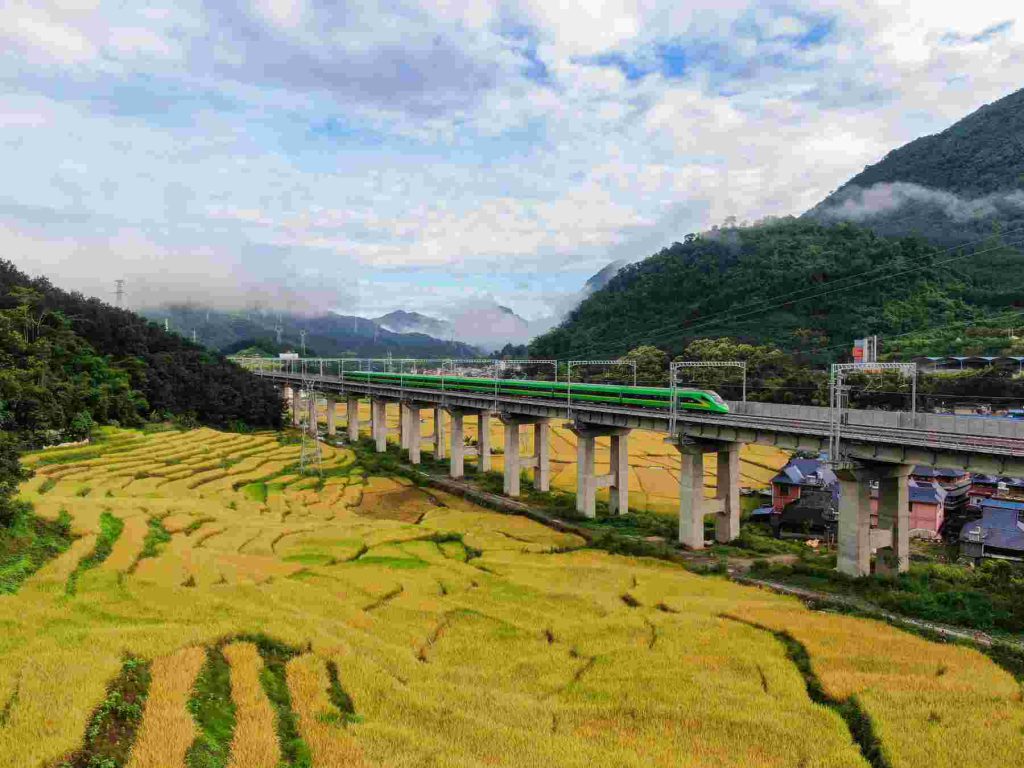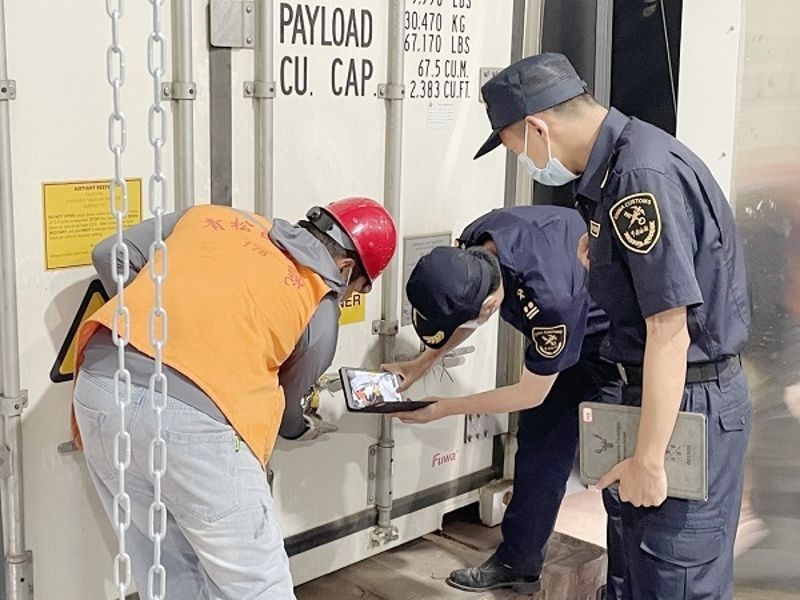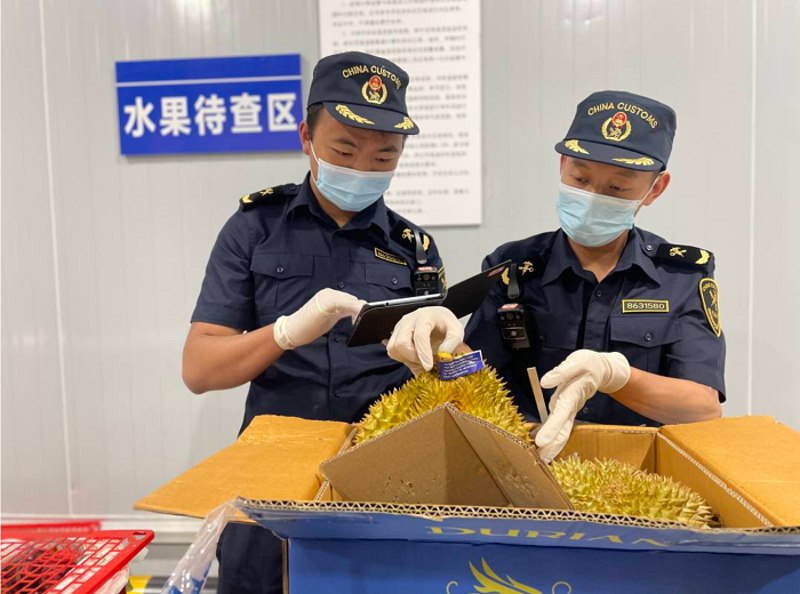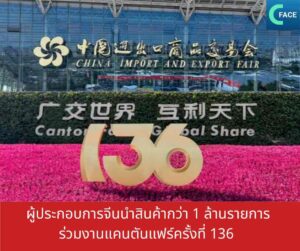Southeast Asian fruits find wider door to China

A bullet train runs on the China-Laos Railway in Mengla county, southwest China’s Yunnan province. (Photo by Li Yunsheng/People’s Daily Online)
By Luo Shanshan, People’s Daily
A variety of imported fruits from Southeast Asia, such as durian, mangosteen and passion fruit, are often seen today at fruit markets in many Chinese cities.
With closer economic and trade ties between China and ASEAN countries, especially after the opening of the China-Laos Railway, more convenient transportation channels have been opened up for Southeast Asian fruits to enter the Chinese market.
At a designated supervision site for imported fruits at the Mohan railway port in Xishuangbanna Dai autonomous prefecture, southwest China’s Yunnan province, carriages of a freight train were seen being shunted to a track for loading and unloading after the train was scanned by large container inspection equipment. Later, containers carrying imported fruits were transferred to a fruit inspection platform, where officers of Mengla Customs affiliated to Kunming Customs followed procedures to inspect the fruits.
“The fruit inspection platform adjusts the temperature to match the optimal conditions for each type of fruit, which ensures the imported produce stays fresh during inspection. The designated supervision site for fruits is set up to prevent the risk of bringing in plant and animal diseases and pests, and thus safeguard national biological security,” said an officer of Mengla Customs.

(Photo from the official website of Kunming Customs)
The Mohan railway port is the first national-level land port on the Chinese section of the China-Laos Railway, where imported goods undergo customs clearance inspections.
Previously, most fruits entering China via Mohan must get to the Mohan highway port by truck first, and then be unloaded for inspection before they were shipped nationwide in China.
At the end of November 2022, following the opening of the designated supervision site for imported fruits at the Mohan railway port, reefer trains for fruits were soon launched along the China-Laos Railway, making fruit imports more convenient.
“Compared to traditional road and sea transport, railway has more advantages, like fixed shipment schedules and transportation time. It helps reduce spoilage of fruits in transit and thus leads to lower import costs,” said Su Huimin, head of customs clearance operations of a customs brokerage company in Yunnan province.
Fruits have high requirements for logistics, storage and customs clearance efficiency. According to Su, now it takes only three days for freshly picked durians in Thailand to arrive in Kunming, the capital of Yunnan province via end-to-end cold chain railway transport. In the past, the shipment would usually take five to seven days, Su added.
Su told People’s Daily that fruits arriving in Kunming will soon hit major Chinese fruit markets through trucking, the China-Laos Railway and the new western land-sea corridor.
While logistics efficiency has significantly improved, customs clearance is also continuously facilitated.
“Targeting the unique requirements of fruits and other fresh produce, Kunming Customs provides “24/7 clearance reservation service”, sets up dedicated clearance windows for agri-food items, and prioritizes the acceptance and release of perishable produce. Additional staff are deployed during certain seasons to enable immediate inspection and release upon arrival, ensuring zero delays for imported fruits to clear customs,” said Han Bin, head of Mengla Customs.
According to him, Mengla Customs had supervised the clearance of 179 inbound fruit trains, which transported a total of 54,200 tons of fruits as of Aug. 22 this year.

(Photo from the official website of Kunming Customs)
As an international land channel linking the Chinese and ASEAN markets, the China-Laos Railway provides a new logistics option for strengthening economic and trade cooperation between the two sides. It not only takes Southeast Asian fruits and beers to China, but also carries Chinese flowers, vegetables, and home appliances to Southeast Asian countries. It is vigorously driving industrial development and trade complementarity along the route.
Since its launch in December 2021, the China-Laos Railway had handled over 5 million tons of export-import freight supervised by Kunming Customs as of Aug. 22 this year.
Ke Zhiqiang, deputy head of Kunming Customs, said Kunming Customs has introduced 18 measures to optimize business environment based on Yunnan’s foreign trade realities, and customized 13 trade facilitation measures for enterprises.
By deploying advanced railway container inspection equipment, accurate inspections and swift releases are effectively ensured, he added. The overall customs clearance time for China-Laos Railway imports and exports has been reduced by more than half compared to when it first opened.







